Menthol is a crucial ingredient for improving scalp health and promoting hair growth, two qualities of value for people struggling with hair loss or hair thinning conditions.
Menthol’s benefits are why we at Divi included this organic compound as an ingredient of our Scalp Serum, Shampoo & Conditioner. Let’s explore more about menthol’s appeal as an ally in helping your scalp.
What is Menthol?
Menthol is a naturally occurring organic compound present in peppermint, corn mint, and other types of mint. It can also be produced synthetically in a laboratory.
Menthol makes up around 40% of peppermint oil and is responsible for many of its therapeutic benefits. This compound gives peppermint its minty smell and taste. It’s also the reason peppermint oil has a soothing and cooling sensation when applied to the skin.
Isolated menthol has a crystalline structure and is semi-solid at room temperature. It’s usually white or clear in appearance. Menthol is widely used in toothpaste, skin care products, and hair and scalp products like conditioners, shampoos, and serums.
This multi-purpose compound has a broad range of therapeutic functions where hair and scalp health is concerned. We include it in our products for several reasons, not least of which for its ability to stimulate scalp health.
The Biological Properties of Menthol
To understand how menthol can support hair growth when included in topical hair and scalp products, we must first take a look at its biological properties. Like the other natural plant extracts used in Divi’s products, menthol has a long list of potential therapeutic actions.
It’s primarily a known vasodilator (blood flow enhancer). As such, menthol increases blood flow to the skin, scalp, and hair follicles by widening and relaxing the blood vessels which supply these surface tissues.
Menthol is also a proven anti-inflammatory, antibacterial, antifungal and antiparasitic agent. In this respect, it’s similar to some of the other plant extracts in Divi’s lineup of products, like rosemary leaf oil and tea tree oil.
Menthol does have one exciting and unique trick up its sleeve: It’s a known pain-reliever and muscle relaxant. This has some interesting therapeutic benefits where hair growth is concerned, which we’ll address further down with specific reference to androgenic alopecia (male and female pattern baldness).
How Menthol Promotes Healthy Hair Growth
In comparison to many other naturally derived personal care ingredients, menthol is well-tested. Taking into account the biological properties mentioned above, let’s explore the exact growth-enhancing mechanisms by which the menthol in Divi’s scalp products could improve the thickness, quality and growth rate of your hair.
Vasodilation Stimulates Hair Growth
As a potent vasodilator, menthol stimulates hair growth via two primary mechanisms:
- Improving blood supply – Menthol widens the capillaries which supply blood to the scalp. This means hair follicles can be properly supplied with the nutrients forming the building blocks of new hair. Improved blood flow also means that hair follicles receive a steady, strong supply of oxygen, which is necessary for optimum function.
- Dilating hair follicles – Regular use of topical hair products which contain vasodilators can increase hair follicle depth over time. Deeper hair follicles may improve root sturdiness and decrease hair loss, as hair strands have a stronger anchor in the scalp.
This result was observed during a study that analyzed the effect of menthol on hair growth treatment in mice. Researchers also observed an increase in the number of hair follicles and an improvement in the overall thickness of hair.
Vasodilation tends to be the cornerstone of any discussion surrounding menthol and hair growth, as there is an abundance of scientific evidence positively linking the two. However, this clever little compound has more to offer your scalp than improved blood flow and follicle dilation alone.
Menthol’s Antifungal and Antibacterial Action
The overall health and cleanliness of your scalp has a direct effect on its ability to grow new hair. Conditions like dandruff, scalp ringworm and seborrheic dermatitis are all associated with bacterial and fungal overgrowth. Untreated, these conditions can cause extreme irritation, flaking and scaling on the scalp. All three symptoms can severely impede hair growth.
As an antifungal and antibacterial agent, menthol can boost hair growth in people who struggle with limited hair growth or thinning hair due to bacterial and fungal overgrowths.
Several plant extracts commonly used in hair products exhibit a strong antibacterial action, but peppermint oil (due to its high menthol content) takes the bacteria-eliminating prize. One study assessed the ability of various topical plant extracts to tackle 22 different strains of harmful bacteria. Peppermint oil was the only tested extract actively combating all 22 strains.
In summary, if bacterial or fungal scalp conditions are hindering your hair growth, our menthol-enriched hair products could help to get you back on track.
Fighting Inflammation-Induced Hair Loss
Menthol can improve scalp health and boost growth by tackling scalp inflammation. Inflammation as a result of scalp conditions (like those mentioned above) or environmental irritants often results in itching and discomfort, which is extremely bad news for hair growth.

Inflammation itself can cause hair thinning as hair follicle function becomes restricted. When inflammation leads to irritation and scratching, the situation can get a lot worse. Persistent scratching aggravates natural hair fall, increasing the number of hairs lost each day. Extreme scratching can go so far as to damage hair follicles, which could lead to long-term hair growth problems and premature hair loss.
Using a menthol-containing shampoo and conditioner – like Divi’s Shampoo & Conditioner – can soothe irritation, calm inflammation, and promote normal hair follicle function.
Boosting Natural Hair Growth With Menthol
There is a great deal of scientific evidence showing how products containing menthol can support scalp health and reduce hair loss in people with normal, relatively healthy hair. The effect may only be minor if your hair is already growing and shredding within normal parameters, but over time, it adds up.
Menthol and Androgenic Alopecia (AGA)
The question on everyone’s lips is this: Can menthol treat androgenic hair loss and other forms of alopecia?
Androgenic hair loss (also referred to as male- or female-pattern baldness) is one of the most common forms of hair loss. According to data, 16% of men aged 18-29 years old experience moderate to extensive hair loss. In men aged 40-49 years old, that figure jumps to 53%.
As you probably expected, female-pattern baldness is less common and typically less severe. However, it's still a major problem. One study found that 40% of women experience some androgenic hair loss by the time they reach 50 years old.
As topical hair products containing menthol can help with natural hair loss, it follows that they may be able to help with androgenic alopecia. To analyze the mechanisms by which this might be possible, we first have to look at the causes of male- and female-pattern baldness.
What Causes Androgenic Hair Loss?
Androgenic hair loss is caused by androgens, a type of hormone stimulating the development of male characteristics. Dihydrotestosterone (DHT) is one such hormone, which has a lot to answer for where male-pattern baldness is concerned. DHT can interfere with the hair’s normal growth cycle by binding to certain hair follicle receptors. In doing so, it can shrink hair follicles, shorten the growth cycle, and increase the rate at which hair falls out.
If you have a genetic predisposition to male-pattern baldness, every-day hair products containing menthol are unlikely to “cure” your hair loss. That being said, they can go a long way toward promoting scalp health and may be useful as part of a comprehensive treatment plan.
Environmental factors like chemicals, diet, stress and chronic illness can bring on or worsen androgenic alopecia. This is usually the case where female-pattern baldness is concerned. Women who develop conditions inhibiting female hormones and promote male hormones (like polycystic ovary syndrome) often experience an increase in male characteristics, like facial hair growth and receding hair.
Balding Scalps Have Reduced Blood Flow
One clear fact is androgenic hair loss (and indeed, other forms of alopecia) is associated with reduced blood flow to the scalp.
One study shows that people who suffer from premature hair loss have on average 2.6 times less blood flow to the scalp compared to people with healthy hair. This same study demonstrated that this reduced blood flow resulted in a 40% reduction in oxygen reaching the hair follicles.
So, is the reduced blood flow the mechanism triggering androgenic alopecia?
Muscle Constriction and Inflammation: Role in Androgenetic Alopecia
Researchers sought to establish what led to this initial blood vessel restriction in people with androgenic alopecia. Scalp and facial muscle tightness were later observed as common precursors in 80% of men who suffer from male-pattern baldness. This resulted in the theory of muscle constriction possibly being a root cause (pardon the pun) of premature hair loss.
This muscle constriction has the potential to be a major hair growth inhibitor, as tightening around the scalp would:
- Restrict nutrient and oxygen supply to hair follicles
- Shrink and tighten hair follicles
- Cause a defensive inflammatory response that could stimulate DHT production and release, thus further impeding hair growth
The researchers responsible for this discovery tested this hair loss mechanism by conducting a male-pattern baldness study during which tightened scalp and facial muscles were relaxed with botox injections. These muscle-relaxing treatments led to a significant improvement in hair growth in approximately 80% of subjects.
How Can Menthol in Divi’s Products Treat Androgenic Hair Loss?
Remember the section on menthol’s biological properties? In addition to being a proven vasodilator, menthol is a super-effective muscle relaxant.
In practice, regular use of high-quality scalp products containing menthol (like Divi’s Scalp Serum, Conditioner, and Shampoo) can relieve tension and muscle constriction in the scalp. In theory, this could delay, mitigate, or even partially cure the onset of non-androgenic premature baldness by maximizing blood flow to the scalp and hair follicles.
Other Scalp-Enhancing Divi Ingredients
As a hair-growth stimulator, menthol is always most effective when used as part of a hair and scalp care treatment alongside other growth-promoting ingredients. At Divi, we choose every ingredient in our lineup of products with the utmost care to ensure our formulations have an all-round, synergistic effect on your scalp’s health.
Rosemary leaf extract is among the other superstar growth-promoting ingredients you’ll find in our products. This extract works especially well alongside peppermint oil and menthol, as it also has a stimulating effect on the scalp.
The Best Way to Use Menthol-Based Products for Your Scalp and Hair
It’s wise to opt for professionally formulated products if you’re looking to leverage menthol’s potential growth-boosting benefits. This will help you get the right balance of active compounds while minimizing the risk of irritation.
For the best results, we recommend using Divi’s Scalp Serum, Shampoo & Conditioner. Using all three products from our lineup will ensure every stage of your routine includes the finest conditioning and growth-promoting ingredients.









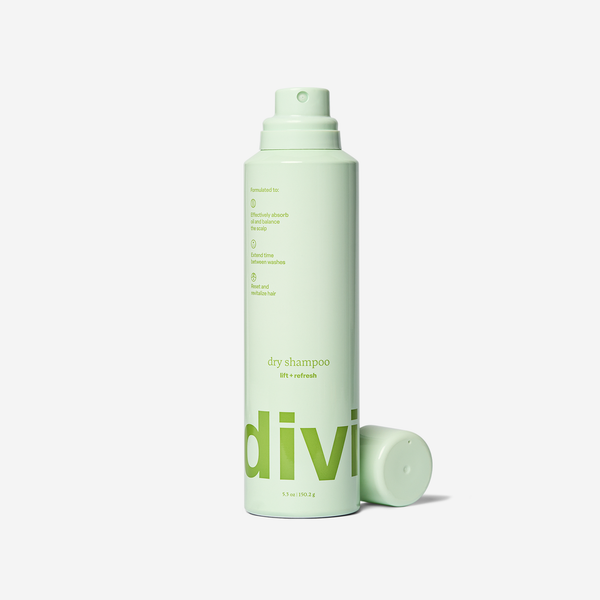

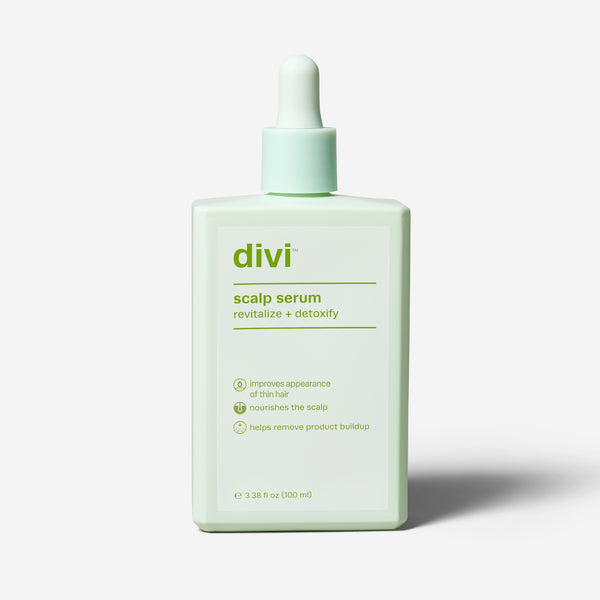

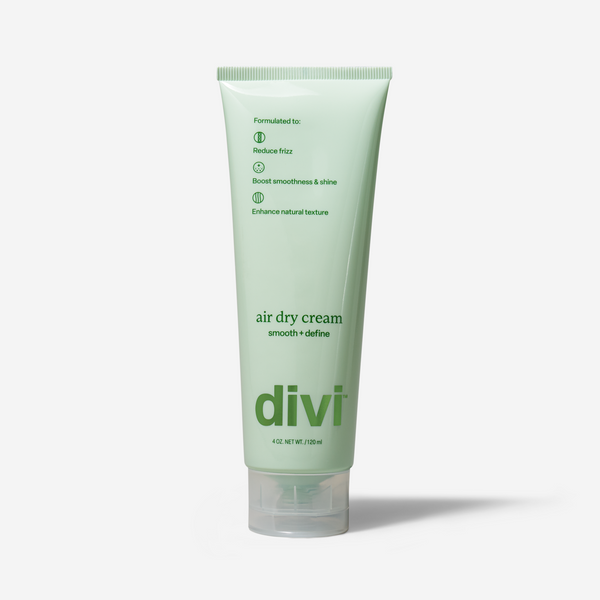
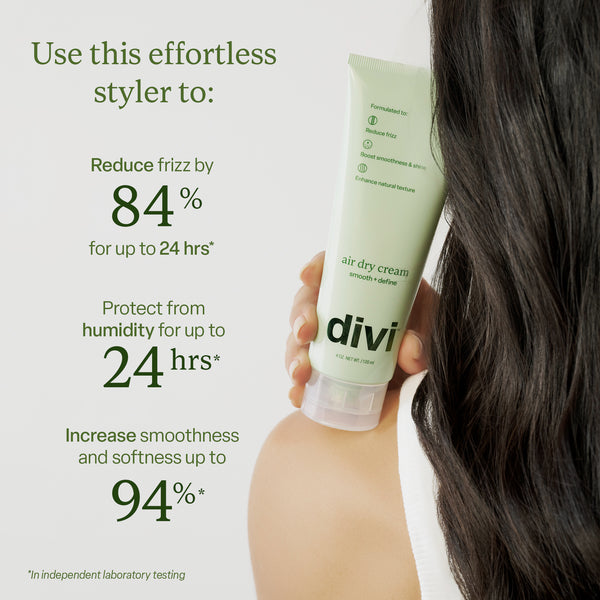
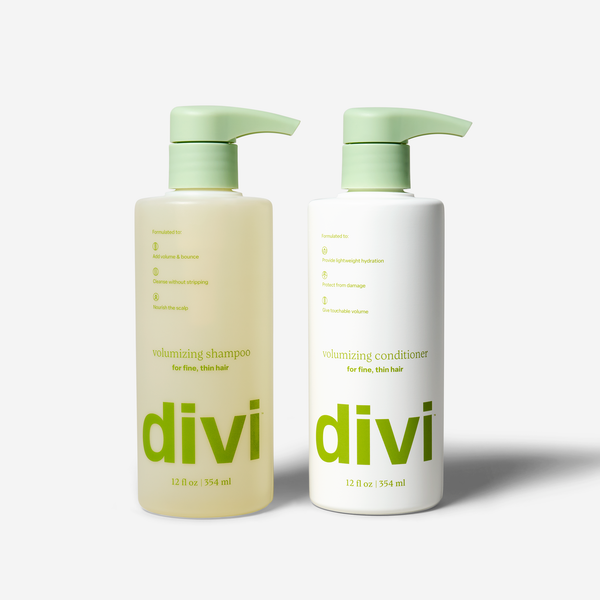

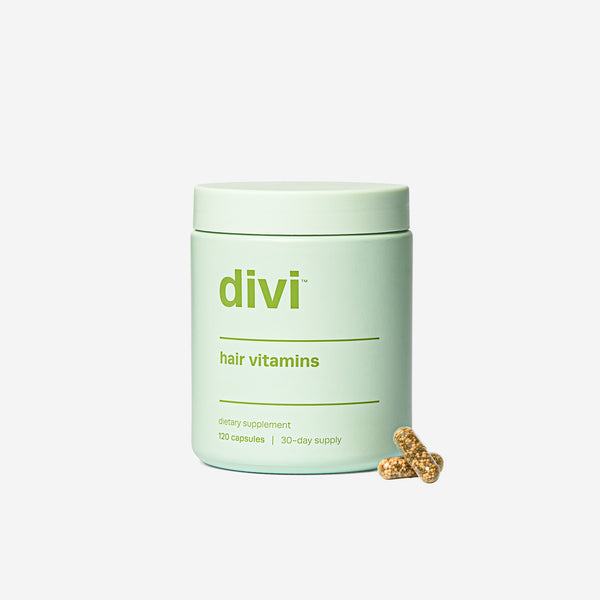
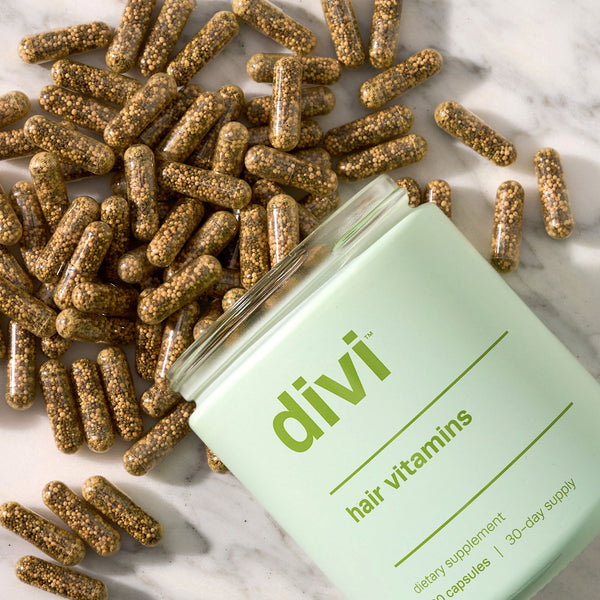
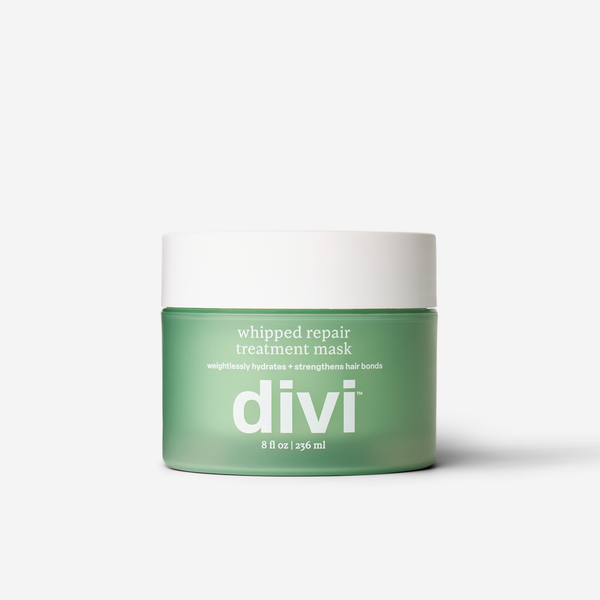
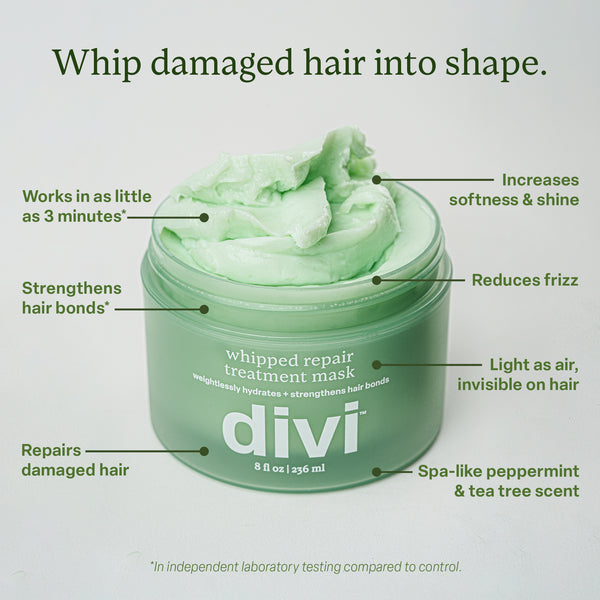
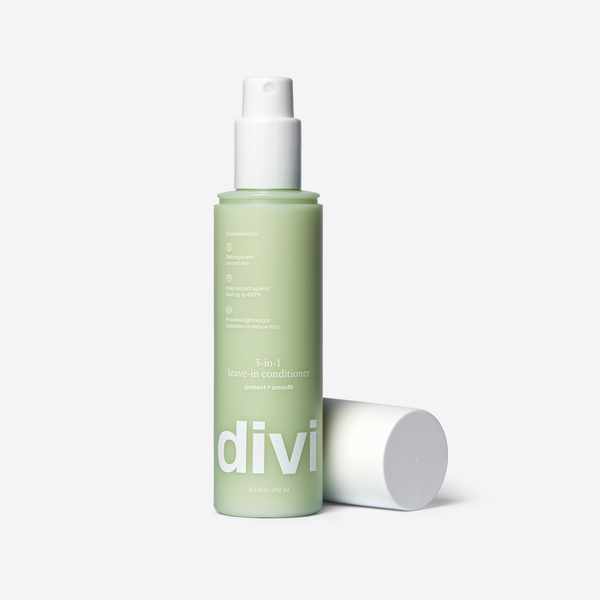



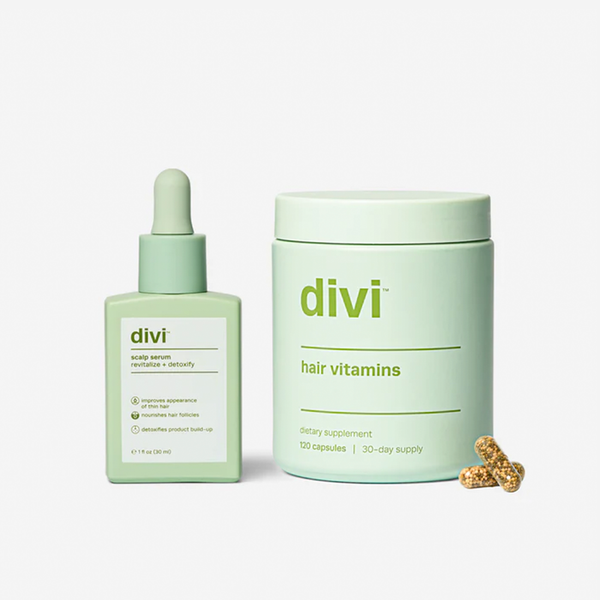
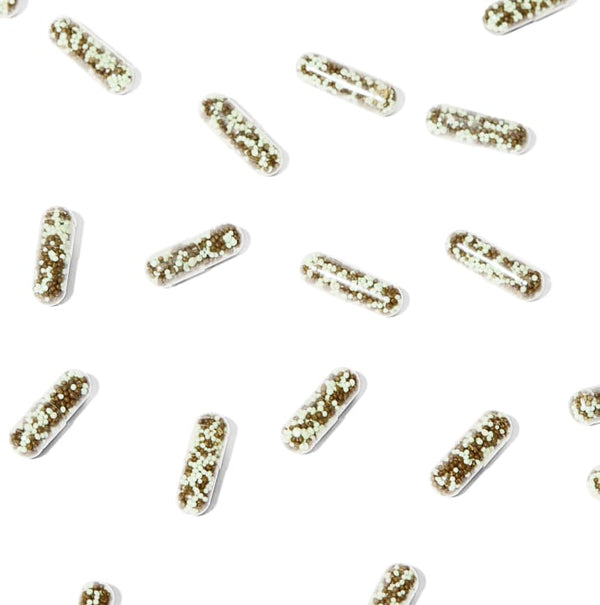
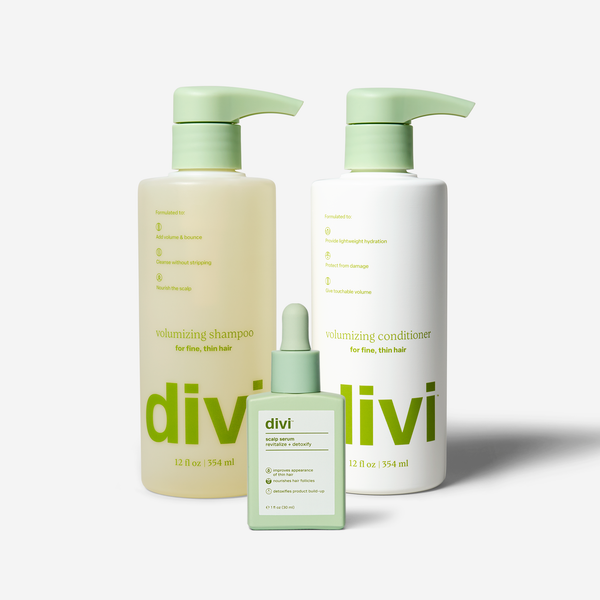
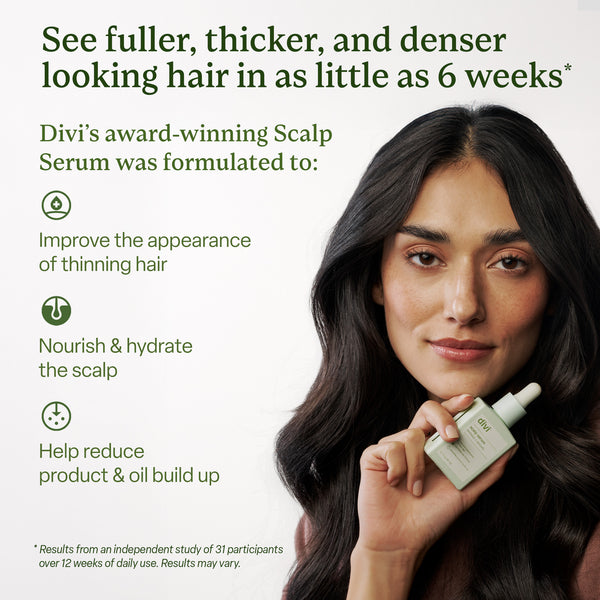



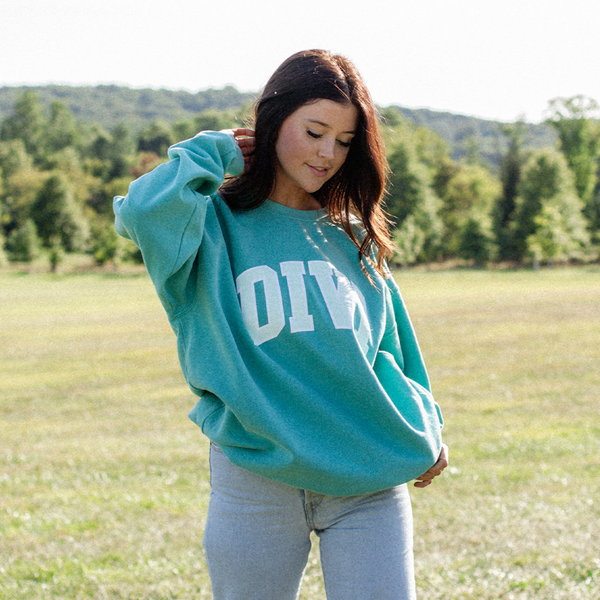







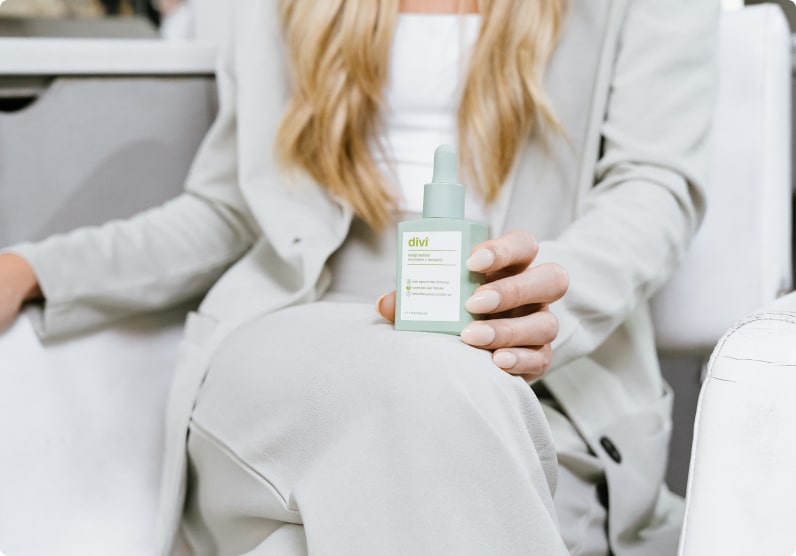






 30ml Scalp Serum
30ml Scalp Serum
 100ml Scalp Serum
100ml Scalp Serum
 Volumizing Shampoo
Volumizing Shampoo
 Hydrating Shampoo
Hydrating Shampoo
 Volumizing Conditioner
Volumizing Conditioner
 Hydrating Conditioner
Hydrating Conditioner
 3-in-1 Leave-In Conditioner
3-in-1 Leave-In Conditioner
 Best Sellers Bundle
Best Sellers Bundle
 Volumizing Starter Bundle
Volumizing Starter Bundle
 Hydrating Starter Bundle
Hydrating Starter Bundle
 The Healthy Hair Bundle
The Healthy Hair Bundle
 Hair Vitamins Trio
Hair Vitamins Trio
 Dry Shampoo
Dry Shampoo
 Hair Vitamins
Hair Vitamins
 Volumizing Shampoo & Conditioner
Volumizing Shampoo & Conditioner
 Travel-Sized Volume Duo
Travel-Sized Volume Duo
 Hydrating Shampoo & Conditioner
Hydrating Shampoo & Conditioner
 Travel-Sized Hydrating Duo
Travel-Sized Hydrating Duo
 Travel-Sized Dry Shampoo
Travel-Sized Dry Shampoo
 Travel-Sized Dry Shampoo Trio
Travel-Sized Dry Shampoo Trio
